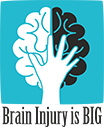empowering the severely brain injured and their families via support, understanding and a network of care
Clinical Psychology
The roles of clinical psychology in services for people with disorders of consciousness (DoC)
Psychology is about understanding the mind and behaviour. Clinical psychologists have a degree in psychology and a doctoral-level degree in clinical psychology. They have a broad range of skills to bring to working with people with very severe brain injuries.
Clinical psychologists are specialists in understanding and assessing cognitive problems. ‘Cognition’ refers to our thinking skills – e.g. attention, memory and learning, problem-solving, and so on. Obviously, all these skills are severely damaged in DoC. The psychologist will work with the team to look at any behaviours the person shows, and whether these behaviours are likely to indicate consciousness. Due to their in-depth understanding of cognition, the psychologist is often well-placed to guide the team on what to prioritise in these assessments.
Clinical psychologists also have expertise in managing challenging behaviour such as pulling at feeding tubes, scratching themselves, or smearing. The psychologist will carry out a detailed assessment to work out a management plan. With people with DoC, this is often about helping families and clinicians manage the environment around the person to reduce the behaviour, as the person can not learn to change these behaviours themselves.
Some people may show behaviours linked with emotional distress, like tearfulness or grimacing. This assessment will try to determine if the person is actually experiencing distress (i.e. if they are actually upset, depressed or in pain). Often, it is concluded that the person is highly unlikely to actually experience these negative emotions because of their reduced consciousness. However, the aim will also be to manage the behaviours and reduce their frequency if possible, primarily because it can be upsetting for other people, particularly relatives, to see the person looking uncomfortable, even if we think the person themselves lacks awareness.
Coming to terms with a DoC can understandably be very distressing for the people around the person with the injury. Clinical psychologists are trained to support families, friends and the other clinicians working with people with DoC. The nature of this support will vary from person to person. Although ‘talking about feelings’ might be part of this support if it is helpful to the particular family member, the focus is often more practical, e.g. trying to help families prioritise the multitude of tasks that they are usually trying to do, and helping them take time to think about their own needs not just the person’s needs.
Dr Sarah Crawford | Consultant Clinical Neuropsychologist



